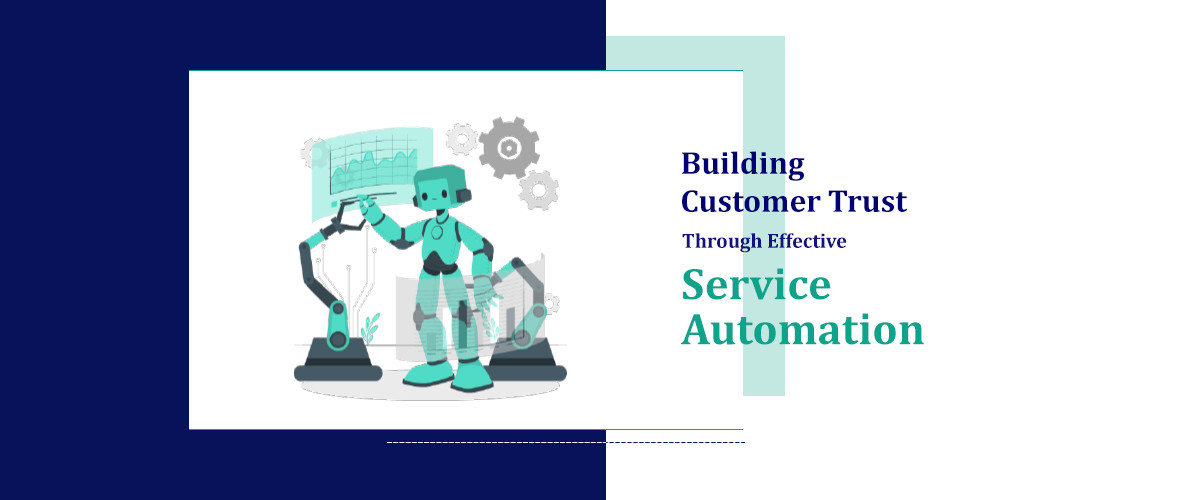What we'll cover
The incorporation of customer service automation has become essential for businesses in today’s rapidly evolving market landscape. By implementing effective strategies for automating customer services, companies can enhance efficiency while ensuring a smooth and dependable experience for their customers. The primary goal of automation is to cultivate trust, as trust is what plays a role in fostering enduring connections with customers. In this article, we will explore the importance of nurturing customer confidence through effective service automation.
Recognizing the Value of Trust
Trust is the cornerstone on which successful customer relationships are built. It's the foundation of all successful automated customer service examples. When customers have faith in a brand or business, they are more inclined to engage with their offerings. However, this trust must be consistently nurtured and upheld. In the realm of customer service, commitment and reliability play a crucial role in instilling a sense of trust by meeting or surpassing customers’ expectations.
How Service Automation Fosters Trust
Service automation simplifies manual processes and minimizes human errors that could lead to delays or misinterpretations in customer interactions. By leveraging cutting-edge technologies such as artificial intelligence and chatbots, businesses can offer assistance and prompt resolutions to address customer inquiries or issues.
1. Rapid Responses:
By utilizing automation, businesses can promptly address customer inquiries around the clock. Whether through automated email responses or chatbots, customers are able to receive an immediate acknowledgment of their query or complaint. This enhances their overall experience and instills confidence in the company’s dedication to timeliness and customer satisfaction.
2. Consistent Communication:
Through the use of automated email templates, companies maintain uniformity in communication across different platforms. This consistency in messaging is highly valued by customers as it reinforces their perception of the brand’s dependability and professionalism. Additionally, consistency in communication also plays a major role in establishing and promoting brand identity in today’s hyper-competitive business environment.
3. Efficient Problem Resolution:
Automation of customer services streamlines the process of problem resolution by categorizing and prioritizing tickets based on the urgency and complexity of the issue. This results in faster resolutions to customer issues without compromising quality or attention to detail.
4. Tailored Experiences:
Automation tools can facilitate highly personalized experiences by analyzing customer preferences and behaviors. By leveraging customer data, businesses can customize their offerings to meet the specific needs of customers, providing tailored solutions that resonate with them on a deeper level.
5. Proactive Updates:
Automation empowers businesses to proactively inform customers about changes, new features, or service disruptions. Timely notifications not only showcase transparency but also offer reassurance to customers that their concerns are being promptly addressed.
Establishing Trust Through Understanding
While automation certainly plays a role in fostering customer trust, it's equally vital to uphold the human touch in customer service. Empathy serves as the bridge between a company and its clientele, and nurturing this bond can further bolster trust.
1. Training Compassionate Customer Service Representatives:
Human agents remain pivotal in handling problems and navigating charged exchanges. Companies should prioritize training their service staff to actively listen and respond with empathy to their customers’ needs. This personal approach fosters feelings of empathy and concern among customers, reinforcing their trust in the brand.
2. Valuing Feedback and Taking Action:
Customers value feeling heard and appreciated by the businesses they interact with. Organizations should actively solicit feedback from customers via surveys or online review platforms, acknowledging both positive and negative comments. Acting on feedback showcases sincerity, responsiveness, and an authentic commitment to enhancing services, thereby building trust over time.
3. Cultivating Genuine Connections:
By emphasizing authenticity and offering support without any additional motives, companies can deepen customer trust levels. Steering clear of sales tactics or messaging ensures that each interaction contributes positively to strengthening customer relationships. This helps make the customers feel valued and appreciated, not just for the business they bring to a brand but also as individuals.
In Conclusion
Establishing trust among customers is paramount for achieving success in today’s business environment. Service automation plays a major role in building trust through rapid responses, clear communication, quick issue resolution, tailored experiences, and proactive alerts. However, while automation is vital, it shouldn't overshadow the importance of human empathy. Nurturing personalized customer interactions enhances trust. By integrating both automation and empathy in their customer service approaches, companies can develop authentic relationships based on trust, positioning themselves as allies in their customers’ experiences.




